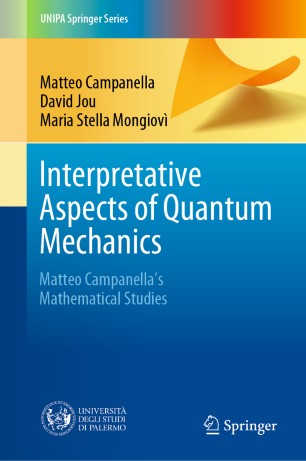

Most ebook files are in PDF format, so you can easily read them using various software such as Foxit Reader or directly on the Google Chrome browser.
Some ebook files are released by publishers in other formats such as .awz, .mobi, .epub, .fb2, etc. You may need to install specific software to read these formats on mobile/PC, such as Calibre.
Please read the tutorial at this link: https://ebookbell.com/faq
We offer FREE conversion to the popular formats you request; however, this may take some time. Therefore, right after payment, please email us, and we will try to provide the service as quickly as possible.
For some exceptional file formats or broken links (if any), please refrain from opening any disputes. Instead, email us first, and we will try to assist within a maximum of 6 hours.
EbookBell Team

0.0
0 reviewsThis book presents a selection of Prof. Matteo Campanella’s writings on the interpretative aspects of quantum mechanics and on a possible derivation of Born's rule – one of the key principles of the probabilistic interpretation of quantum mechanics – that is independent of any priori probabilistic interpretation. This topic is of fundamental interest, and as such is currently an active area of research. Starting from a natural method of defining such a state, Campanella found that it can be characterized through a partial density operator, which occurs as a consequence of the formalism and of a number of reasonable assumptions connected with the notion of a state. The book demonstrates that the density operator arises as an orbit invariant that has to be interpreted as probabilistic, and that its quantitative implementation is equivalent to Born's rule. The appendices present various mathematical details, which would have interrupted the continuity of the discussion if they had been included in the main text. For instance, they discuss baricentric coordinates, mapping between Hilbert spaces, tensor products between linear spaces, orbits of vectors of a linear space under the action of its structure group, and the class of Hilbert space as a category.